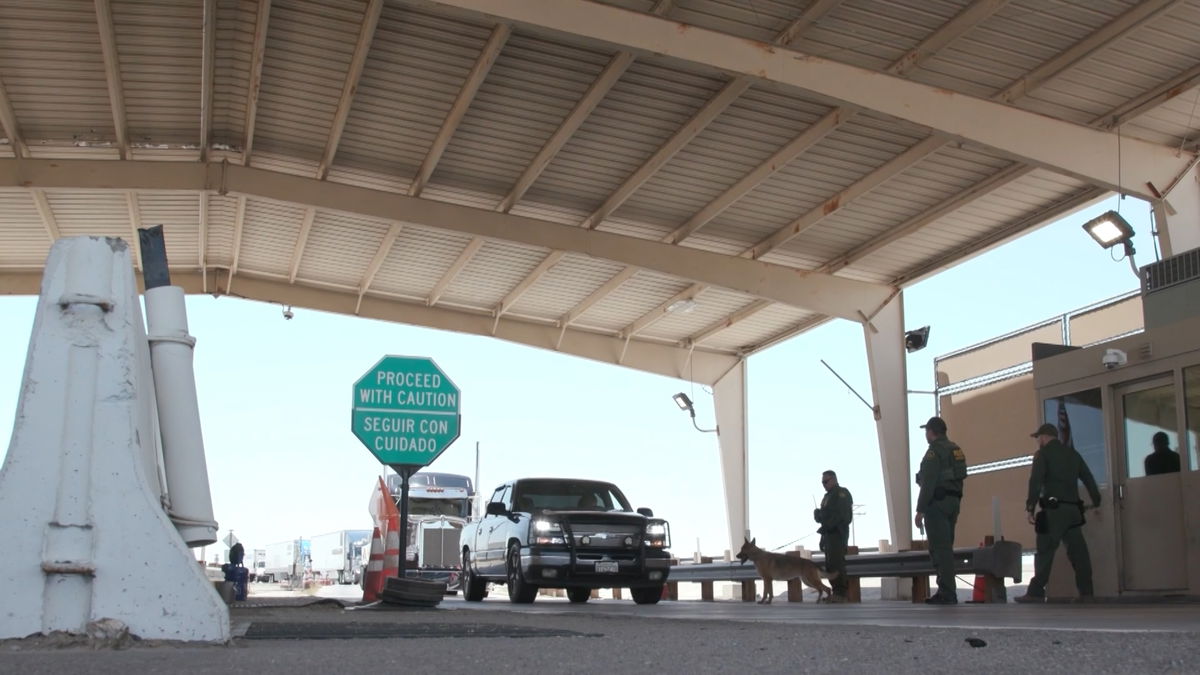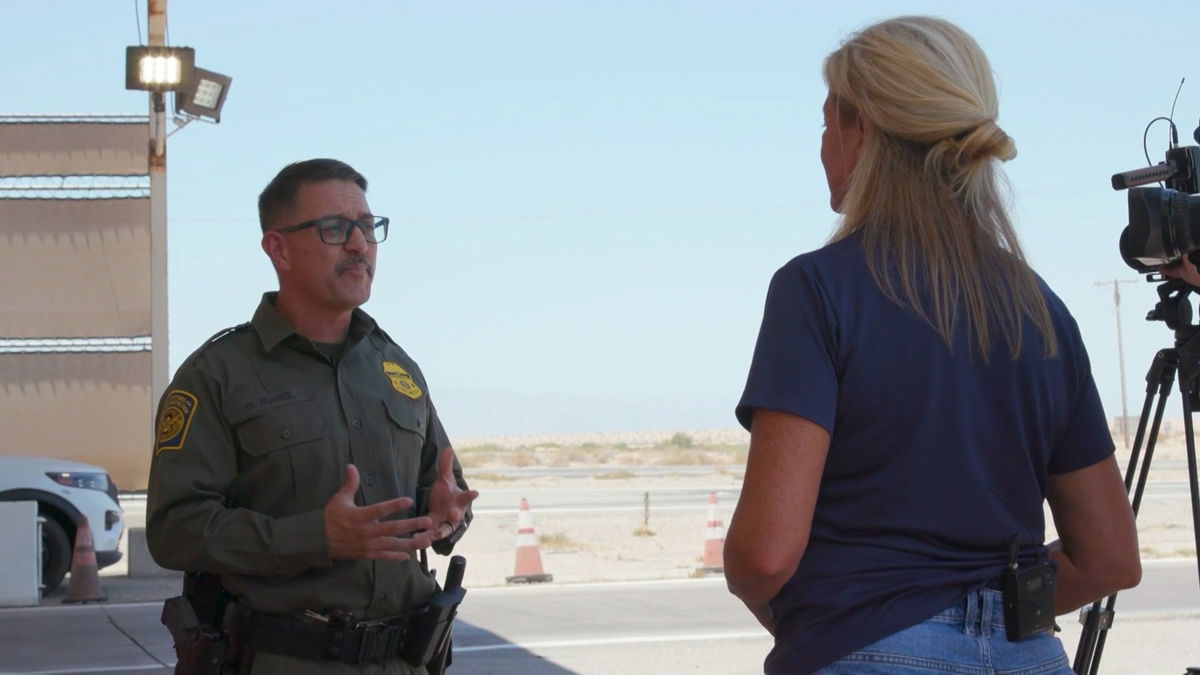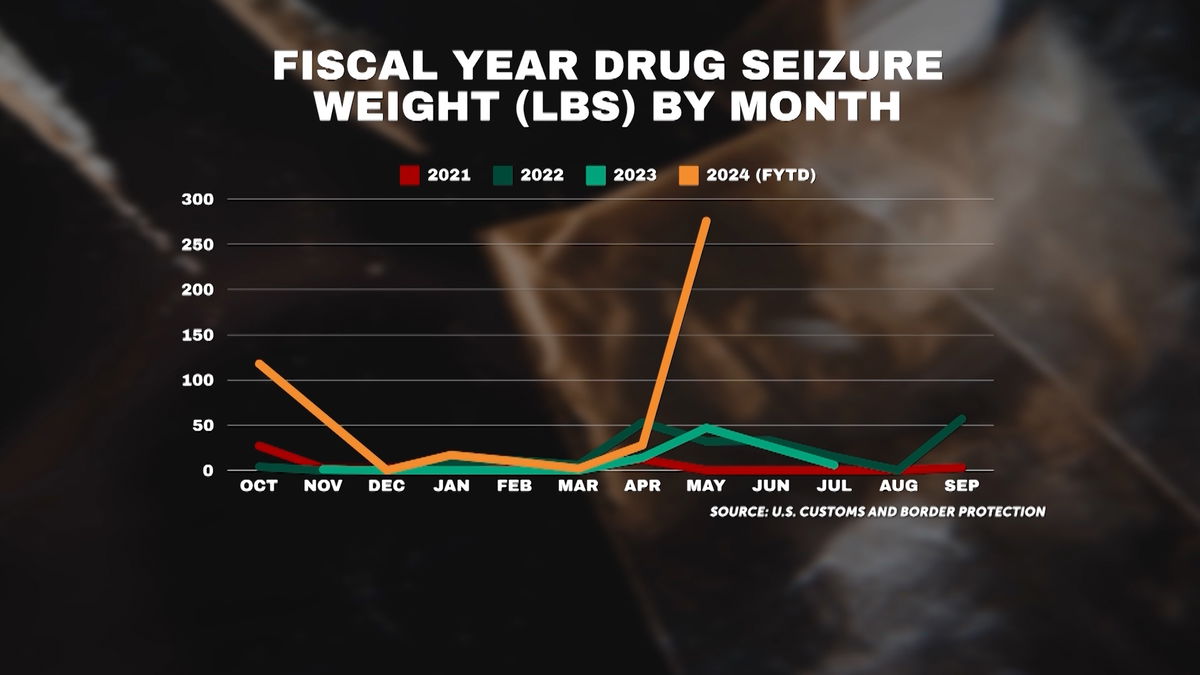Fentanyl Crisis: Border Control
The Fentanyl Crisis. News Channel 3 I-Team investigator Karen Devine's intensive investigation into a local border checkpoint.
“We are the front line against dangerous drugs and from people entering the communities," said U.S. Border Patrol Agent Harvey Nunez, who is stationed at the Highway 86 immigration checkpoint.
Nunez says this checkpoint identifies more smugglers and drugs than all the others. it’s in the El Centro Sector and considered the Indio checkpoint, located about 60 miles from the border.

“Our agents here have to use the utmost caution with dealing with it. We wear personal protective gear such as gloves and goggles whenever we’re dealing with it," Nunez said.
"Why do you think people are choosing this route, do they think they're not going to get caught?" I-Team investigator Karen Devine asked Agent Nunez.

Nunez answered, "“This is a choke point, right, so if they go around us they go into the desert they go into surrounding areas, we also have agents positioned in those areas, so if we didn’t have the checkpoint here, it would be a free for all."
Karen wasn’t the only one asking questions. Officers probing drivers, checking IDs and looking for tell-tale signs that may lead to a secondary inspection.
The driver and passengers escorted to another area for questioning. Backpacks and luggage were removed from the trunk as the k9 worked the scene looking for contraband.
Ultimately, they were cleared and on their way.
"Instead of it being reasonable suspicion we can now go to probable cause, for the canine, because that’s what the canine’s been trained to do to sniff drugs and hidden people inside the vehicle," Nunez said.
Nunez says so far in fiscal year 2024 agents have seized over 450 pounds of fentanyl.

“I know you’ve seen some here, pills and powder, are you seeing more or less at this point?” Karen asked Nunez.
“We’re seeing more that’s coming through,” Nunez said.
Walking and talking with Nunez, his passion for his career is evident, but in the war against drugs-officers can say only so much.
More questions but who can answer them? Retired DEA chief of operations, Michael Braun.
“You’ve got hundreds of these folks coming across the border on a daily basis and if anyone thinks the cartels are not in large part responsible for that activity, then they’re sorely mistaken. They’re very much behind it,” Braun said.
And more hard questions, as Braun says corruption from the cartels reaches to every part of the U.S. from large cities to small towns.
“Is it working at all, the border, the checkpoints, what has to happen to make sure we stop some of this from getting in?” Karen said.
“It goes back to education, treatment, enforcement, holding ultimately those principally responsible for producing or manufacturing this stuff and ultimately distributing it into our country they need to be brought to justice, they need to be locked up,” Braun said.
Border Patrol shared a message to anyone who thinks they could sneak contraband through the El Centro Sector.
“Don’t do it, we’re going to arrest you apply the harshest consequences to you,” Nunez said.
Visit Our 'Fentanyl Crisis' Section For More Coverage
- Earlier this year, News Channel 3 anchor Karen Devine hosted the town hall with professionals in healthcare, education, and law enforcement who shared the work they’ve been doing to ‘Combat the Fentanyl Crisis’ throughout the Coachella Valley.
If you or someone you know has an addiction problem and is looking for some help, we've included some information on local resources for you.
RECOVER - Online addiction treatment for alcohol and opioid use
- RECOVER - Online addiction treatment for alcohol and opioid use
- Hazelden Betty Ford
